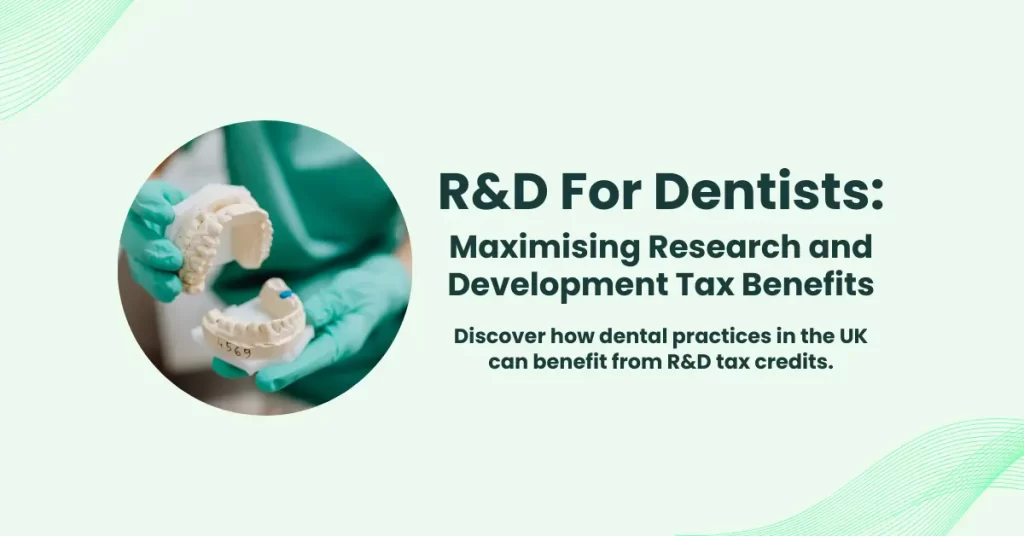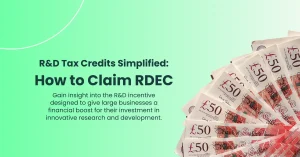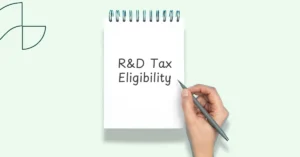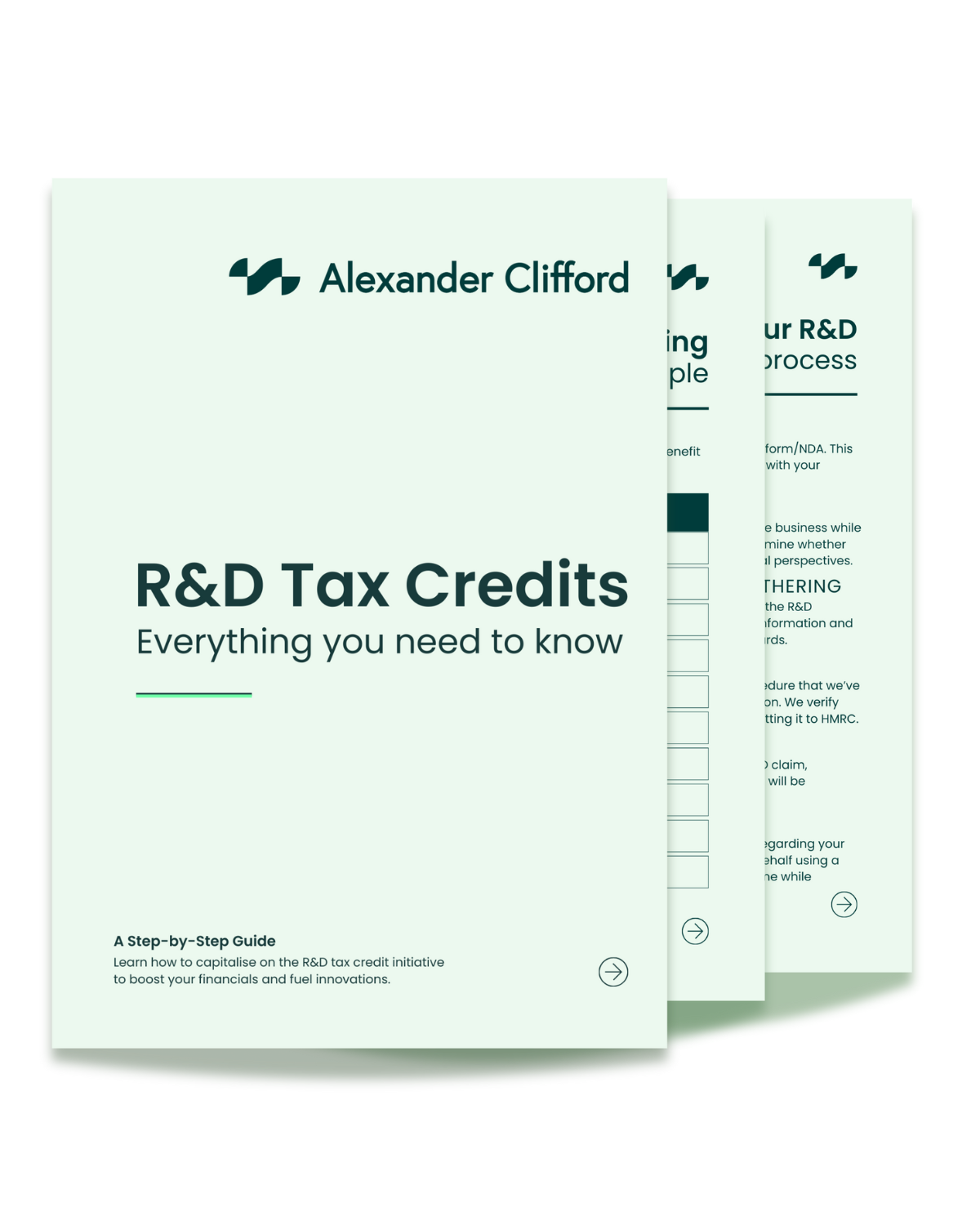Boost Your Dental Practice with R&D Tax Credits

Discover how dental practices in the UK can benefit from R&D tax credits. Learn about qualifying activities, eligibility criteria, and how to claim research and development tax incentives.
When it comes to the number of industries that may qualify for R&D tax relief, the scope is broad. Afterall, HMRC states that any company engaged in research and development activities that aim to scientifically or technologically advance their industry, may be eligible for a claim under the tax relief scheme.
Due to the large scope, navigating R&D can seem daunting. So to simplify the process, we’re taking a mini dive into each industry and how their research and development projects could qualify for R&D tax incentives.
R&D Tax Credit for Dentists: Maximising Research and Development Tax Benefits
With constant advancements being made throughout the medical industry, it’s becoming more important for companies to understand what constitutes as R&D under the HMRC guidelines – especially considering the fact that dental developments may often be rendering pre-existing medical technologies on a smaller scale.
Understanding R&D Tax Credit for Dentists
Navigating R&D tax credits is no easy feat. Primarily it’s all about discovering the eligibility of the business and the project(s) in alliance with industry research and development.
What are R&D Tax Credits?
The R&D tax credit scheme was developed in 2000 in order to encourage small and medium sized enterprises (SMEs) to invest in industry related research and development. After the success of this incentive, HMRC introduced the R&D expenditure credit (RDEC) scheme in 2002 in order to award larger companies with tax relief for their investment in similar projects.
As of April 1st 2024, these schemes were merged in order to further incentivise UK based companies with increased tax relief opportunities.
Essentially R&D tax credits are a government funded incentive designed to enhance UK based technological and scientific development. These credits are designed to allow companies to claim tax relief on consumable items used in research and development projects, including costs incurred on:
- Fuel
- Materials
- Water
- Power
As guidelines state that R&D tax credits are a corporate tax relief, this means that only private companies undergoing research and development activities may be eligible. This means that dentists that practise under the Nation Health Service (NHS), aren’t able to claim R&D tax credits regardless of their research and development activities, but they may qualify for alternate government funding for their projects.
Qualifying R&D Activities for Dentists
As we’ve already covered, dentistry R&D activities should aim to scientifically or technologically advance industry practices. This means that projects focusing on the development of innovative new dentistry products – software or services or even projects that aim to solve scientific or technological uncertainties within the dentistry field – would likely be eligible for R&D tax credits.
Considering the fact that there is a vast range of qualifying research and development projects, dental innovation tax relief could be highly beneficial to those working in the private sectors with oral health. To give you an idea of what qualifying dentistry R&D activities may look like, here are a few examples:
- Development of alternative bonding materials
- Research focused on improving clinical results
- Research into the use of AI in dentistry
- Development of new treatments and services
How to Claim R&D Tax Benefits for Dental Practices
Claiming dental tax deduction requires having accurate financial records that supports the qualifying expenditure, and detailed documentation that outline the research and development activities. Furthermore, claimants must be sure that their activities absolutely qualify for R&D tax credits – something that can be certified by using the four-part test for eligibility.
Documentation and Eligibility Criteria
In order to ensure R&D tax credit eligibility, we recommend that claimants undergo a quick review of their work to determine whether their project(s) align with one of the following four criteria:
- Permitted purpose
Confirmation that the projects have the aim of enhancing the performance, reliability, quality and functionality of a product or software - Elimination of uncertainty
The question that if at any point in your project, there was a possibility of unpredictable results arising in any of your processes - Process of experimentation
Assurance that the project engages in the process of undertaking a trial-and-error phase with the intention of overcoming technological uncertainties - Technological in nature
Confirmation that the project falls within the domains of engineering, physical sciences, biological sciences, or computer science
According to the HMRC documentation criteria, companies are required to “…show that [your project] needed research, testing and analysis to develop [a service, software or product].” What this means for dentists looking to make an R&D claim, is that they need to be able to prove that the research and development activities aim to positively improve the field of oral health.
To do this, there are a range of documents required to substantiate a claim, including:
- Project descriptions
- Technical reports
- Supporting documents
As the financial records required to make an R&D tax credit claim must show the accurate costs of consumable items used for research and development activities, you’ll need to include details of:
- Relevant R&D expenditure
- Total relevant expenditure
- Connected companies’ relevant R&D and total expenditure
Additional Tax Strategies for Dental Practices
In addition to R&D tax credits, dentists may be able to claim tax relief on a variety of allowable business expenses. Furthermore they may qualify for additional expenses in relation to their research and development project(s).
Other Tax Benefits
Dental practices and dentists that qualify for R&D tax credits may be eligible for R&D capital allowances. These too are claimable incentives based on research and development activities, but instead of offering relief on consumable items, R&D capital allowances encourage long term investment in innovative industry advancement due to the fact that they typically pertain to large scale assets.
To further support the dental industry, dentists may also be eligible to claim the following expenses in accordance with the HMRC:
- Dental practise expenses
- Travel expenses
- Student loan repayments
- Childcare vouchers (or tax-free childcare)
These tax benefits are designed to encourage individuals to pursue a career in dentistry, but all are subject to eligibility under the HMRC rules and regulations.
Are you a dentist looking to maximise your tax benefits? Don’t miss out on potential savings through R&D tax credits. Consult with our tax experts today to ensure you are claiming all available credits and incentives. Contact us now to learn more and start saving!







